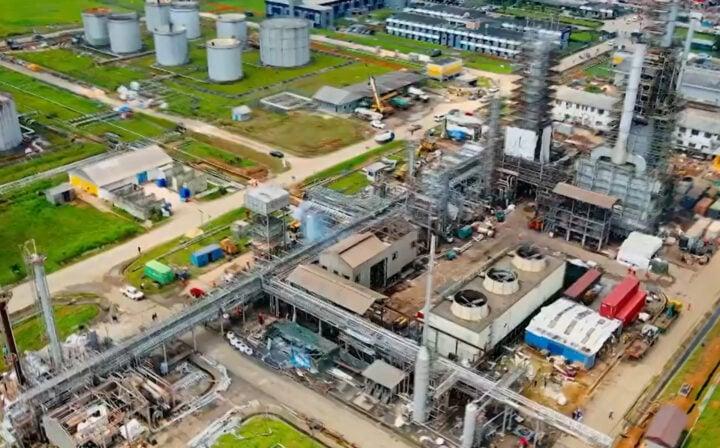The Petroleum and Natural Gas Senior Staff Association of Nigeria (PENGASSAN) has blamed political interference, corruption, and mismanagement for the persistent failure of Nigeria’s state-owned refineries.
The association said the facilities were not failing because Nigerians lack the technical expertise, but because workers were denied the tools, resources, and enabling environment to deliver effectively.
PENGASSAN President, Mr. Festus Osifo, made this known on Friday at the ongoing 4th PENGASSAN and Labour Summit (PEALS 2025), holding in Abuja with the theme, “Building a Resilient Oil and Gas Sector in Nigeria: Advancing HSE, ESG, Investment and Incremental Production.”
“The refineries are not failing because Nigerians do not have the skills. They are failing because of political interference that denies workers the tools, resources, and environment to deliver. Corruption and mismanagement have also worsened the situation,” Osifo said.
He noted that Nigeria’s energy future requires more than skilled manpower, stressing the urgent need for tools, policy stability, and supportive reforms to drive growth in the sector.
According to him, the performance of Nigerian workers during the COVID-19 pandemic proved the country’s capacity, as they successfully operated offshore platforms after expatriates left.
“This clearly showed that we have the manpower to sustain global-standard energy production without disruption,” he said.
Osifo further warned that policy inconsistencies and political interference undermine investor confidence and cripple the oil and gas sector.
Read also: Polytechnic students face fresh disruption as ASUP issues 21-day ultimatum to FG
“We must have an industry that investors can predict in five or ten years. Constantly changing policies will only chase away investors and delay sectoral growth,” he added.
On capacity building, he urged both indigenous and international operators to prioritise training to ensure Nigerians remain globally competitive and prepared for the changing demands of the energy and labour markets.
In a goodwill message, the Secretary-General of the Trade Union Congress (TUC), Mr. Nuhu Toro, commended PENGASSAN for its foresight, describing the summit as a model platform for strategic dialogue in the energy sector.
“This summit is a testament to the foresight and strategic thinking required to navigate industry dynamics and their implications for organised labour,” Toro said.
He urged other unions under the TUC to emulate the initiative, stressing that modern engagement, dialogue, and innovation remain vital tools for advancing workers’ welfare and strengthening collective bargaining power.








